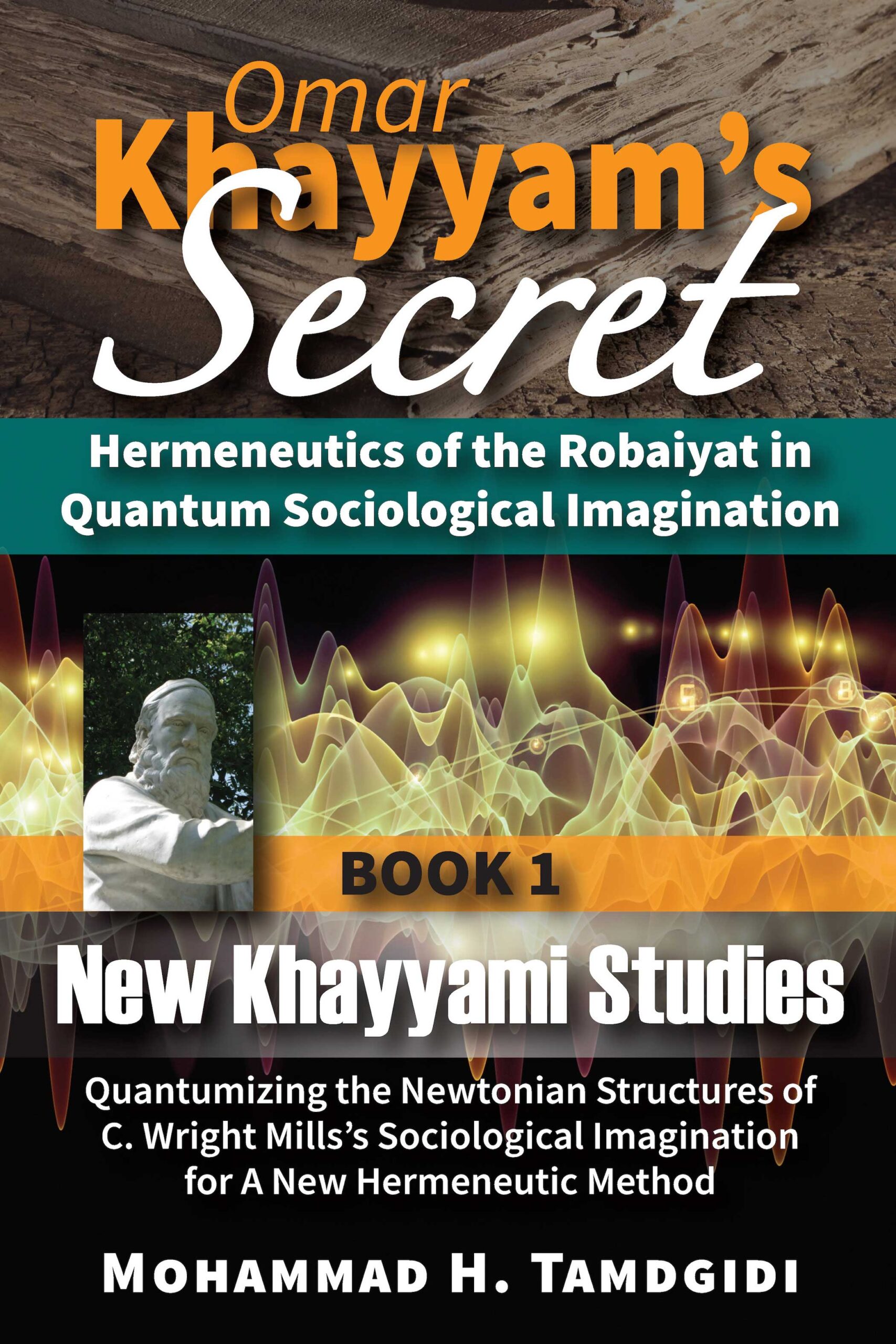Book Section: CHAPTER I — The Promise and the Classical Limits of C. Wright Mills’s Sociological Imagination — by Mohammad H. Tamdgidi
$20.00
This essay, titled “The Promise and the Classical Limits of C. Wright Mills’s Sociological Imagination,” is the first chapter of the first book, subtitled New Khayyami Studies: Quantumizing the Newtonian Structures of C. Wright Mills’s Sociological Imagination for A New Hermeneutic Method, of the twelve-book series, Omar Khayyam’s Secret: Hermeneutics of the Robaiyat in Quantum Sociological Imagination, authored by Mohammad H. Tamdgidi.
Description
Abstract
This essay, titled “The Promise and the Classical Limits of C. Wright Mills’s Sociological Imagination,” is the first chapter of the first book, subtitled New Khayyami Studies: Quantumizing the Newtonian Structures of C. Wright Mills’s Sociological Imagination for A New Hermeneutic Method, of the twelve-book series, Omar Khayyam’s Secret: Hermeneutics of the Robaiyat in Quantum Sociological Imagination, authored by Mohammad H. Tamdgidi. The study of texts to understand their meanings in social context falls in the subdisciplinary field of the sociology of knowledge, broadly defined as a branch of social scientific inquiry concerned with understanding how knowledge and social reality relate to one another. Studying Khayyam’s attributed works and those of others about him in order to understand his views and life in historical context, therefore, can be framed as a study in the sociology of knowledge, broadly speaking.
In this chapter, using Khayyami studies as an applied exploratory setting, Tamdgidi revisits the Millsian sociological imagination, raising eight issues that he believes express the limits imposed by the classical Newtonian way of thinking on Mills’s imaginative framework. He explores the eight issues in terms of the following questions. 1. The problem of dualism: can personal troubles be also public issues, and vice versa? 2. The problem of atomism: which self’s personal trouble is it? 3. The problem of separability: whose public issues are these? 4. The problem of objectivity: can we as observers separate ourselves from others’ personal troubles and public issues? 5. The problem of determinism: is it always the case that society shapes the individual/self, and that public issues always shape personal troubles? 6. The problem of continuity: are we supposed to find causal relations amid easily locatable and traceable causal chains? 7. The problem of disciplinarity: are we always better off dividing and specializing our knowledges into fragmented disciplines? And 8. The problem of scientism: is science always Western, and still Newtonian?
The author asks and explores whether Mills’s comments on Newtonianism and the Newtonian “way of thinking” in his book were meant to acknowledge that he himself was gripped by and embraced Newtonianism in his proposed critical return to “classical” pursuit of the sociological imagination, or did he instead mean to question such fundamental structures of thinking, seeking ways to move beyond them in favor of newer scientific, cultural, and sociological imaginations?
Recommended Citation
Tamdgidi, Mohammad H. 2021. “CHAPTER I — The Promise and the Classical Limits of C. Wright Mills’s Sociological Imagination.” Pp. 27-60 in Omar Khayyam’s Secret: Hermeneutics of the Robaiyat in Quantum Sociological Imagination: Book 1: New Khayyami Studies: Quantumizing the Newtonian Structures of C. Wright Mills’s Sociological Imagination for A New Hermeneutic Method. (Human Architecture: Journal of the Sociology of Self-Knowledge: Vol. XIV, 2021. Tayyebeh Series in East-West Research and Translation.) Belmont, MA: Okcir Press.
Where to Purchase Complete Book: The various editions of the volume of which this Book Section is a part can be ordered from the Okcir Store and all major online bookstores worldwide (such as Amazon, Barnes&Noble, Google Play, and others).
Read the Above Publication Online
To read the above publication online, you need to be logged in as an OKCIR Library member with a valid access. In that case just click on the large PDF icon below to access the publication. Make sure you refresh your browser page after logging in.





